Rainforest gardeners
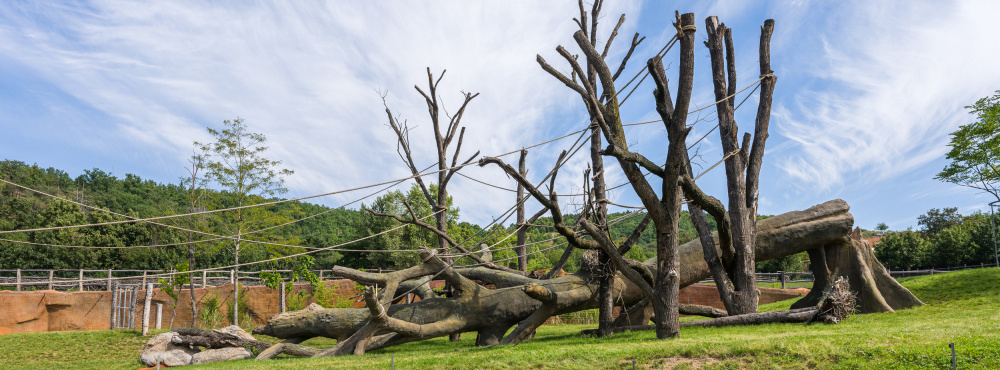
In forest ecosystems, some animal species act as "gardeners", changing the structure of the forest by their foraging activity, and helping regenerate areas by dispersing seeds. Thus, they help maintain forest health and diversity.
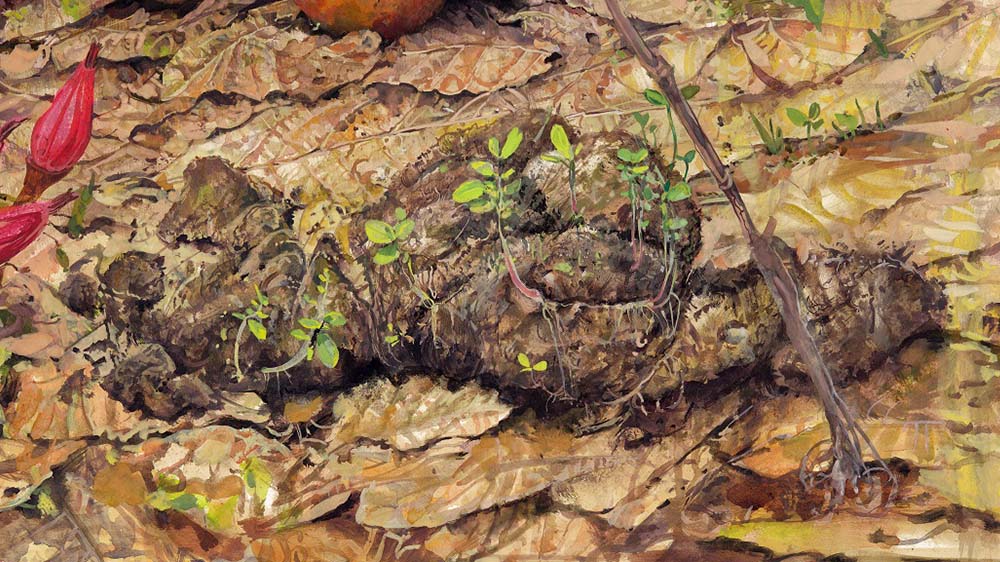
Gorilla dung with seedlings sprouting from it. Illustration: Pavel Procházka
Did you know…?
- Gorillas, elephants, pigs and other fruit-eaters are essential for forest regeneration. They disperse seeds in their dung, many of which germinate better after passing through the gut.
- Seeds of 70 plant species have been identified in gorilla droppings. In forest elephant dung it was even over 100!
- Gorillas often spend the night under more open canopy, where they also leave dung, helping seeds of light-demanding species of plants to germinate.
- 70 – 90% of woody plants in tropical forests are dispersed by animals.
Moabi
Baillonella toxisperma
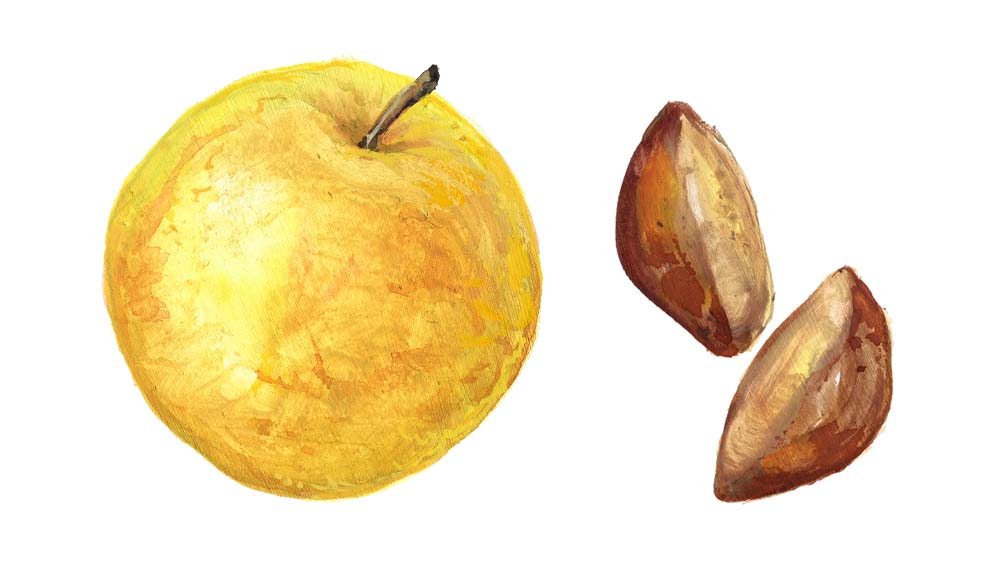
Moabi is a huge and quite a rare tree, which grows up to 60 metres in height. It is mainly spread by elephants—they can eat the large fruits without damaging the seeds. Valuable oil is made from the seeds of moabi. However, the tree bears fruit once every three years and only after it reaches 90–100 years of age.
Bush mango
Irvingia sp.
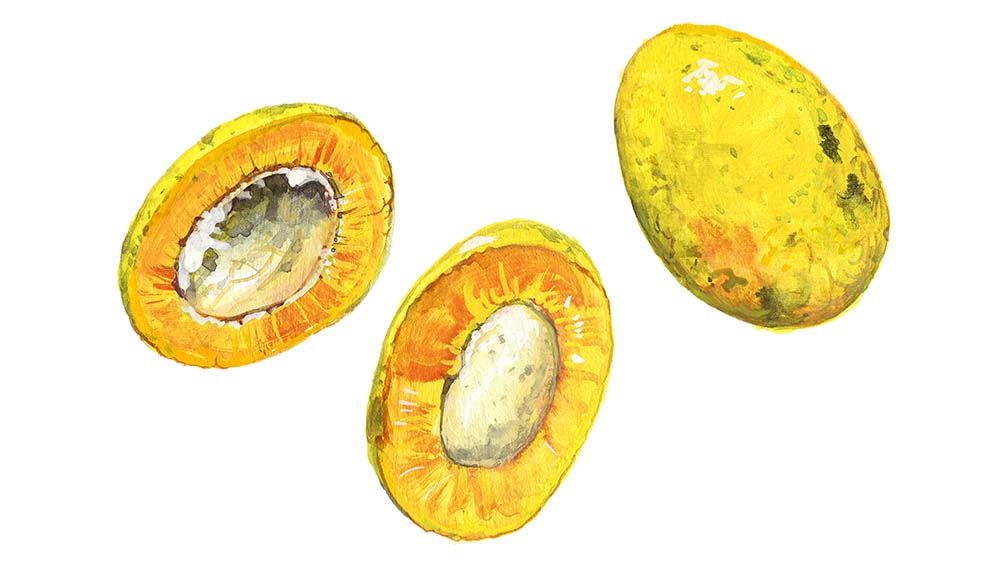
It resembles the true mango, but is an unrelated plant. Jelly, jam, juice and sometimes wine is made from the fruits. The pulp is also used to prepare black dye for colouring fabrics. Oil is extracted from the seeds. It grows up to 40 metres.
Monkey fruit
Myrianthus arboreus
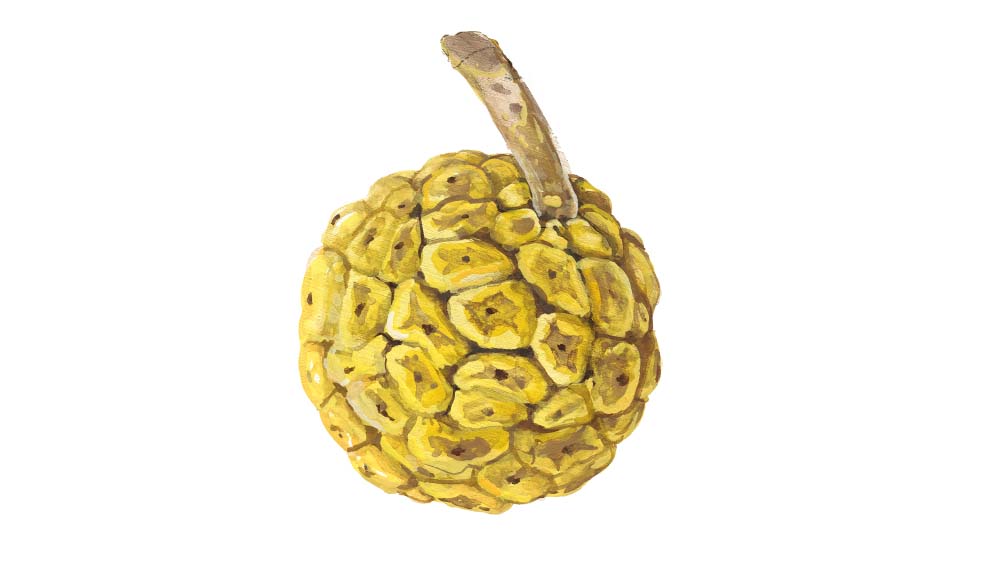
Giant leaves of monkey fruit can be up to 70 centimetres long. They are used as a vegetable. After falling, the leaves make a good humus. Seeds are dispersed by gorilla, monkeys, or birds. The tree or a shrub is usually 10–20 metres high.
Uapaca
Uapaca sp.
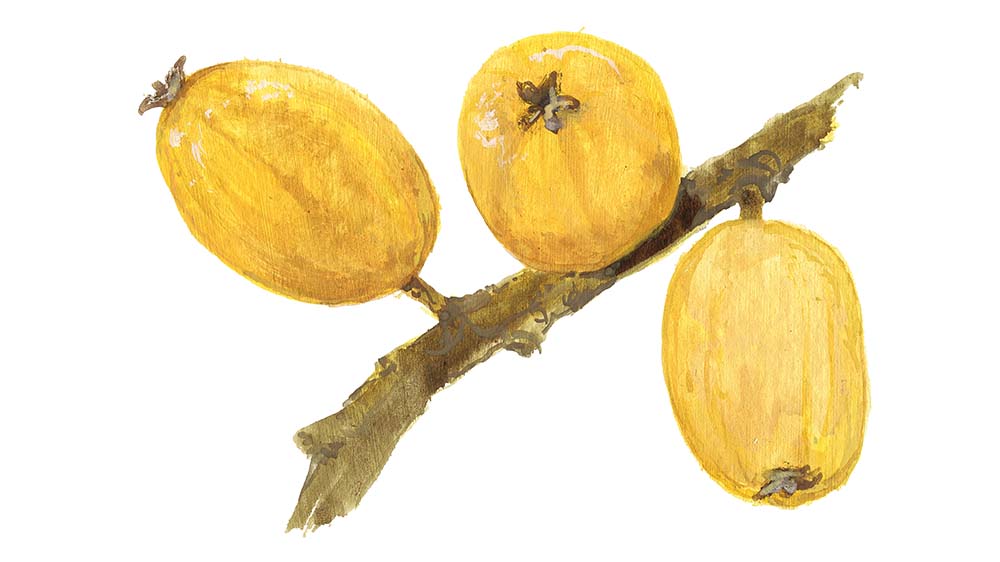
The uapaca tree often grows on waterlogged ground, where its stilt-like roots help to stabilise the soil. Its fruits are a favourite food for various animals—including primates, elephants, pigs, duikers and birds. It can grow up to 30 metres tall.
Opepe
Nauclea diderrichii
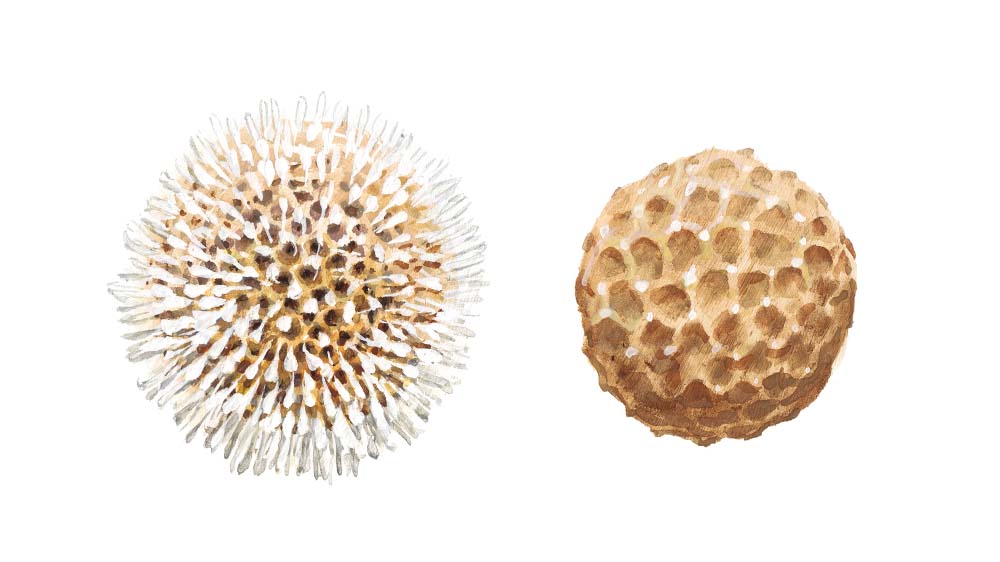
Opepe tree is a so-called pioneer plant—the first to colonise clearings. It is used for quality wood and forest restoration.
Aframomum
Aframomum sp.
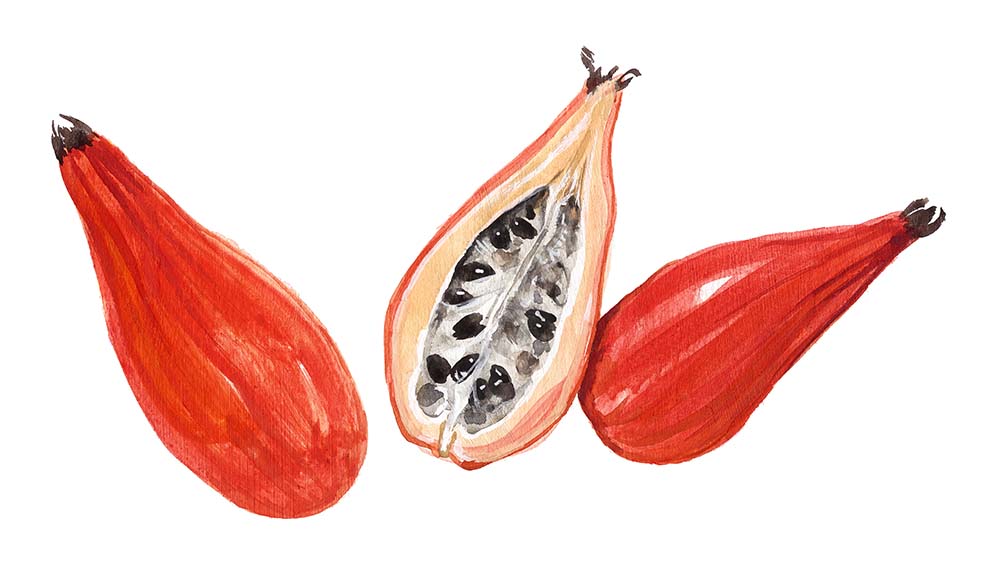
The fruits of the aframomum have potential in treating malaria. Gorillas eat the fruits and often use the leaves to build their nests. Aframomum is related to ginger.
ZOOPRAHA.CZ
Contacts
- The Prague zoological garden
U Trojskeho zamku 120/3
171 00 Praha 7
Phone.: (+420) 296 112 230 (public relations department)
e-mail: zoopraha@zoopraha.cz
Others










